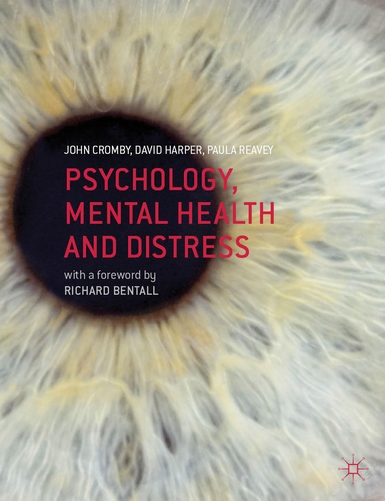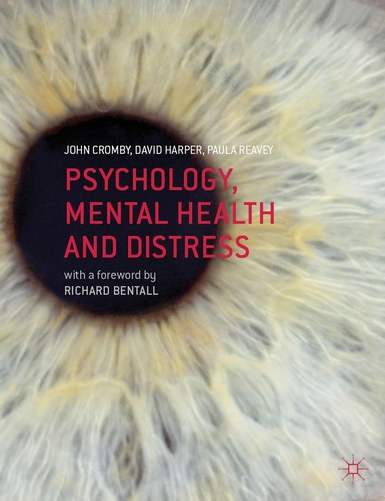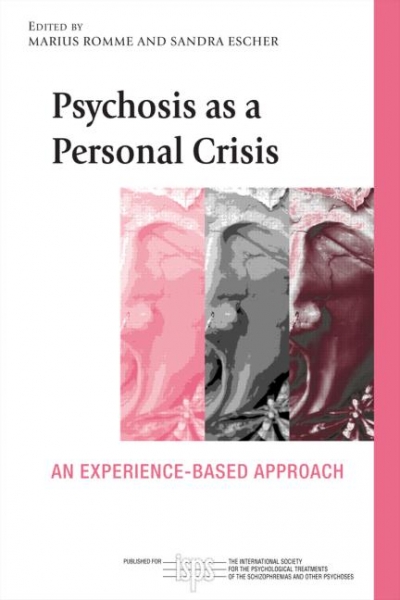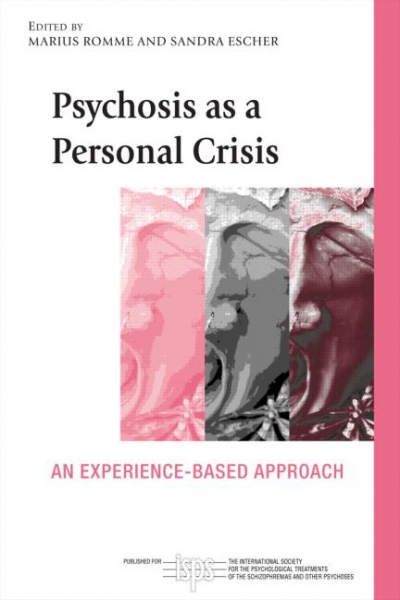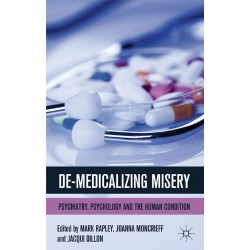Notes on Contributors
Preface; R.Dallos
Carving Nature at its Joints? DSM and the Medicalization of Everyday Life; M.Rapley, J.Moncrieff & J.Dillon
Dualisms and the Myth of Mental Illness; P.Thomas & P.Bracken
Making the World Go Away, and How Psychology and Psychiatry Benefit; M.Boyle
Cultural Diversity and Racism: An Historical Perspective; S.Fernando
The Social Context of Paranoia; D.J.Harper
From ‘Bad Character’ to BPD: The Medicalization of ‘Personality Disorder’; J.Bourne
Medicalizing Masculinity; S.Timimi
Can Traumatic Events Traumatise People? Trauma, Madness and ‘Psychosis’; L.Johnstone
Children Who Witness Violence at Home; A.Vetere
Discourses of Acceptance and Resistance: Speaking Out About Psychiatry; E.Speed
The Personal Is the Political; J.Dillon
‘I’m Just, You Know, Joe Bloggs’: The Management of Parental Responsibility for First-Episode Psychosis; C.Coulter & M.Rapley
The Myth of the Antidepressant: An Historical Analysis; J.Moncrieff
Antidepressants and the Placebo Response; I.Kirsch
Why Were Doctors so Slow to Recognise Antidepressant Discontinuation Problems?; D.Double
Toxic Psychology; C.Newnes
Psychotherapy: Illusion With No Future?; D.Smail
The Psychologization of Torture; N.Patel
What Is To Be Done?; J.Moncrieff, J.Dillon & M.Rapley
Figure: Papers Using Term ‘Antidepressant’ On Medline 1957-1965
Index
‘Despite longstanding awareness of the limitations of the medical model when applied to difficulties of human behavior and adjustment, the fields of psychiatry and psychology continue to accede to the pressures of medicine and the drug industry in their conceptualization of these human realities. Ironically, however, this medical model, eager as it is to fit so much of people’s experience into diagnostic categories, is a social construction. This book represents a significant effort to de-mystify, de-medicalize, and reclaim important aspects of the human condition.’ – Kenneth D. Keith, Professor, Department of Psychological Sciences, University of San Diego, USA
‘De-Medicalizing Misery has assembled an impressive cast of leading mental health experts. Together they challenge the simplistic and pessimistic biological model of human distress that has, with eager support from the pharmaceutical industry, dominated the mental health field for far too long. This evidence-based, humane and optimistic book not only explains where biological psychiatry went wrong, it spells out the alternatives.’ – John Read, University of Auckland, New Zealand and Editor of ‘Models of Madness’
‘The psychiatrist or psychologist is expected to do something for every patient sitting in front of him or her, but how robust is the intellectual basis of psychiatric science when psychiatric ‘diseases’ are merely symptom clusters – clustered by us, not by nature? We are in indeed in the age of the medicalization of everyday life, when Lord Layard, economist and architect of the IAPT programme, can write in the BMJ that ‘mental illness’ has taken over from unemployment as our greatest social problem. But what is the test of ‘mental illness’? In DeMedicalizing Misery the authors examine some of the domains lamentably absent from orthodox psychiatry and psychology training programmes, with their medical model focus, and in so doing raise the IQ of the whole debate. And not just for clinicians.’ – Dr Derek Summerfield, Consultant Psychiatrist & Senior Lecturer, Institute of Psychiatry, King’s College, London, UK.
Authors: MARK RAPLEY is Professor of Clinical Psychology at the University of East London, UK. He is the author of The Social Construction of Intellectual Disability, Quality of Life Research and, with Susan Hansen and Alec McHoul, Beyond Help: A Consumers’ Guide to Psychology.
JOANNA MONCRIEFF is Senior Lecturer in the Department of Mental Health Sciences at University College London, UK and a Practising Consultant Psychiatrist at the North East London Foundation Trust. She has spent her academic career re-evaluating the nature and efficacy of psychiatric drugs and exploring the history and politics of psychiatry. She is the co-chair of the Critical Psychiatry Network, and has campaigned against the dominance of the biomedical approach to psychiatry, the extension of psychiatric coercion and the influence of the pharmaceutical industry, in alliance with service user groups. She is the author of The Myth of the Chemical Cure (Palgrave Macmillan), A Straight Talking Introduction to Psychiatric Drugs, and numerous papers and book chapters.
JACQUI DILLON is the National Chair of the Hearing Voices Network, UK, and a Director of Intervoice – the International Network for Training, Education and Research into Hearing Voices. She is a campaigner, international speaker and trainer specialising in hearing voices, psychosis, dissociation and trauma. She is the co-editor of Living with Voices: An Anthology of 50 Voice Hearers’ Stories of Recovery. She has published numerous articles and papers, is on the editorial board of the journal Psychosis: Psychological, Social and Integrative Approaches and is a member of the collective for Asylum, The Magazine for Democratic Psychiatry.



